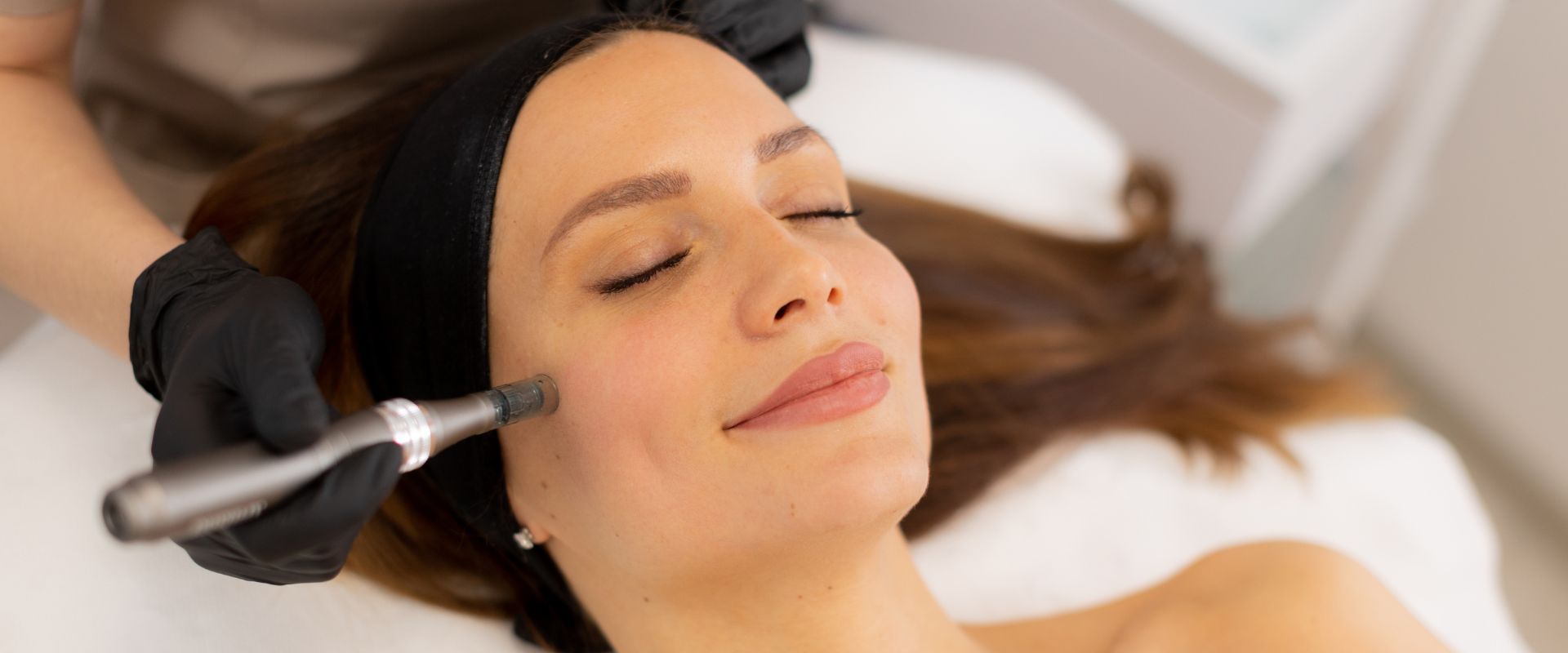AHPRA’s 2025 Cosmetic Injectables Guidelines: What Practitioners & Patients Need to Know
From 2 September 2025, Australia’s aesthetics industry will experience its most significant regulatory update in years. The Australian Health Practitioner Regulation Agency (AHPRA) is introducing new cosmetic injectables guidelines that change who can train, how treatments are prescribed, what can be advertised, and the safety steps required before and after treatment.
At Derma Institute, we have already updated our training pathways, course structures, and eligibility criteria to ensure every delegate can train — and later practise — in full compliance with these new rules. Whether you’re a practitioner or a patient, these changes will affect how non-surgical cosmetic procedures are delivered in Australia.
Why Are the AHPRA Guidelines Changing?
These updated AHPRA rules for non-surgical cosmetic procedures aim to:
- Strengthen patient safety and wellbeing.
- Ensure only qualified, competent practitioners deliver cosmetic injectables.
- Provide greater transparency in advertising and patient communication.
- Standardise consent, prescribing, and post-treatment care across the industry.
By aligning Australia’s standards with international best practice, patients will receive safer treatments — and practitioners will have a clear framework for professional, ethical practice.
Key Changes Practitioners Need to Know
1. Updated eligibility and training requirements
- Registered Nurses (RNs) must have at least 1 year full-time post-registration experience in a general or specialist nursing area (excluding cosmetic work) before entering aesthetics.
- Enrolled Nurses (ENs) require 1 year post-registration plus 1 year in a related clinical field, and must work under RN supervision.
- Sole-qualification RNs (e.g., paediatrics, mental health) must complete an NMBA-approved general RN program before practising in aesthetics.
- All practitioners must complete theory and hands-on training covering anatomy, patient assessment (including psychological screening), and complication management before treating patients.
Practitioner impact: If you are just starting out, you’ll need to ensure your qualifications and experience meet the new entry requirements before enrolling in a cosmetic injectables course. Under the updated guidelines, completing a short course alone is not enough — you must demonstrate competence across patient assessment, anatomical knowledge, safe injection techniques, and complication management before you can practise independently.
At Derma Institute, we’ve built these requirements directly into our 4-Day Combined Cosmetic Injectables Course. In addition to our core foundation and advanced practical training, we now include two comprehensive online modules:
- Advanced Complication Management – covering prevention, early detection, and evidence-based emergency protocols for vascular occlusion, infection, allergic reactions, and other adverse events, with case-based learning to strengthen clinical decision-making.
- Clinical Aesthetic Practice: Anatomy, Ethics, Assessment & Patient Safety – an in-depth study of facial anatomy and vascular mapping, ethical and legal considerations in aesthetic medicine, patient suitability assessment (including psychological screening), and AHPRA-compliant safety standards.
These modules, combined with supervised live model injecting and formal competency sign-off, ensure you meet AHPRA’s expectations for safe, ethical, and skilled practice — and leave fully prepared to begin your career in aesthetic medicine within your professional scope.
2. New rules for consultations & prescribing
- An in-person or live video consultation is required every time a cosmetic injectable is prescribed.
- Asynchronous prescribing (via text, email, or online form without a live consult) is banned.
- Every patient must have their own individual prescription — no bulk or batch prescribing.
Practitioner impact: These changes mean every cosmetic injectables treatment must start with a fresh, real-time consultation between the prescriber and the patient — even for returning clients. This increases the level of clinical responsibility and collaboration between injectors and prescribers, ensuring treatment decisions are made with the most up-to-date patient information.
At Derma Institute, our updated course packages — including the 4-Day Combined, Starter Practitioner, Advanced Practitioner, and Complete Practitioner pathways — are designed to prepare you for these requirements from day one. Across all packages, you’ll learn:
- How to conduct thorough patient consultations that meet both AHPRA and state/territory drugs and poisons legislation requirements.
- How to work effectively with prescribers, including what information they need, how to document it, and how to support them in making safe prescribing decisions.
- How to integrate live video consultations into your clinic workflow while maintaining rapport, privacy, and compliance.
- The legal and ethical considerations for documentation, record keeping, and prescription management.
Every package blends comprehensive theory modules, hands-on injecting with live models, and formal competency sign-off to ensure you can confidently perform treatments while staying compliant with AHPRA’s new consultation and prescribing rules.
3. Stricter advertising regulations
Under the updated AHPRA and Therapeutic Goods Administration (TGA) rules, there are now strict limits on how cosmetic injectables can be advertised in Australia.
- You cannot use brand names in any public-facing advertising.
- Patient testimonials and reviews — even if unsolicited — cannot be published.
- Before-and-after images are prohibited in all marketing materials, including social media, websites, and printed brochures.
- All advertising must be factual, evidence-based, and free from language or imagery that could glamorise procedures, overstate results, or minimise the risks involved.
Practitioner impact: This represents a significant shift in how aesthetic businesses market themselves. Your website content, social media posts, and printed materials will all need to be carefully audited for compliance. Even small oversights — such as an old post containing a brand name — could result in regulatory action.
At Derma Institute, we go beyond clinical skills training by ensuring all our course packages include business and marketing compliance training alongside the practical and theoretical components. You’ll learn:
- How to create AHPRA- and TGA-compliant promotional materials.
- What words, phrases, and imagery to avoid — and how to replace them with compliant, engaging alternatives.
- How to position your services using educational, value-driven content rather than prohibited claims.
- How to brief marketing agencies or social media managers so they understand and follow the new rules.
This means you’ll graduate confident in both your clinical abilities and your ability to promote your services without risking a breach of AHPRA or TGA requirements.
4. Stronger consent & safety requirements
- Consent must be both verbal and written, in plain language, and kept separate from any consent for image use.
- Practitioners must discuss realistic expectations, risks, benefits, alternative options, and possible complications.
- For patients under 18: a 7-day cooling-off period is mandatory between consent and treatment, and certain injectables are prohibited.
- Detailed post-treatment care instructions and emergency contact details must be given to every patient.
Practitioner impact: Under the new rules, consent is a structured process — not just a form to sign before treatment. You’ll need to dedicate more time to consultations, ensure patients fully understand the procedure, and keep clear, compliant records.
At Derma Institute, all our course packages include comprehensive consent and patient safety training so you can meet these requirements with confidence. We cover:
- How to conduct and document informed consent in a way that satisfies AHPRA and NMBA standards.
- How to explain complex medical information in clear, patient-friendly language.
- How to identify when a patient is not suitable for treatment — and handle these conversations professionally.
- Safety protocols for post-treatment care, including escalation pathways in the event of complications.
By the time you complete your training, you’ll have the practical tools and confidence to carry out consent and safety processes that protect both your patients and your professional registration.
What This Means for Derma Institute Courses
To ensure our Australian training remains fully aligned with the new AHPRA cosmetic injectables guidelines, we’ve made significant updates to both our course content and enrolment process. These changes are designed to protect patients, support practitioners, and maintain the highest standards of safety and compliance.
Key updates include:
- Retiring the standalone 1-Day Foundation Course – shorter introductory formats no longer meet the depth of training required under the new guidelines.
- Expanding our core training pathways — including our 4-day Combined, Starter Practitioner, Advanced Practitioner, and Complete Practitioner packages — to provide:
- Additional online theory modules covering anatomy, ethics, patient assessment (including psychological screening), and safety protocols.
- A dedicated complications management masterclass focusing on prevention, early detection, and evidence-based treatment of adverse events.
- Supervised live model injecting with structured feedback and formal competency sign-off to confirm readiness for independent practice.
- Refining our enrolment process to carefully verify eligibility in line with AHPRA and NMBA rules before training begins.
Our goal is simple: every graduate should leave our courses confident, competent, and compliant, ready to deliver safe, ethical aesthetic treatments in Australia’s evolving regulatory landscape. Whether you’re entering the field or advancing your skills, our updated training ensures you meet — and exceed — the new national standards.
What This Means for Patients
For patients, these changes mean:
- Treatments will only be performed by appropriately trained, registered health practitioners.
- Consultations will be more thorough, assessing both physical suitability and psychological wellbeing.
- You’ll receive clear, realistic information about outcomes, risks, and aftercare.
- Your safety will be at the forefront of every treatment decision.
Stay Informed & Compliant
If you’re a practitioner, our team can help you navigate the new AHPRA requirements and select the right training pathway.
If you’re a patient, you can feel confident that these changes are designed to improve your safety, transparency, and treatment experience.
🔗 View our AHPRA-Compliant Cosmetic Injectables Courses
📞 Contact us for guidance on eligibility or enrolment.
Derma Institute remains committed to delivering world-class training that prioritises patient safety, professional competence, and regulatory compliance.








